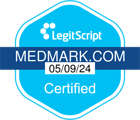The road to recovery is different for everyone affected by substance use disorder; it can be a long and winding path with many potential obstacles along the way. Regaining mental and physical health after the damage caused by substance abuse requires a lot of support, bravery, and patience. Committing to a treatment facility is just the first step towards change for someone dealing with addiction. The real hard work begins after the patient has received their treatment or counseling for the day and reenters real life. That’s where the encouragement of friends and family comes into play. While stable and successful rehabilitation is fully in the hands of each individual in treatment, there are many ways in which loved ones can support them during their quest for long lasting sobriety.
Recognize addiction as a disease.
It’s important for those supporting someone in recovery to educate themselves on the latest science behind addiction and how it affects the brain. The classification of addiction as a disease by many medical associations has helped ward off the long-standing stigma against those who are affected by it. Reading well-sourced information on how this complex disease is a combination of biological, behavioral and environmental factors can shed light on many causes that lead to addiction, including genetics. The best way to help someone in recovery is to supply them with powerful knowledge that will help everyone cope with the changes that happen in treatment.
Identify enabling and codependent behaviors.
Addiction is referred to as the “family disease” because it affects the friends and loved ones of the people affected by substance use disorder. It’s often recommended that those closest to a person recovering from drug use disorder seek therapy and counseling to assist with adjusting to the recovery process. Many people have unknowingly found themselves in a codependent role while caring for someone with substance use disorder, not realizing that sometimes their idea of “helping” is actually hurting. It’s crucial to recognize these behaviors in order for the person in recovery to successfully achieve long lasting sobriety while continuing to enjoy having their loved ones in their new, sober lives.
Show empathy and forgiveness.
Before a person with substance abuse disorder gets to the point where they finally decide it’s time to take control of their drug use, there is usually a path of destruction left behind that has negatively affected many people. During recovery, they will go through therapy that digs deeply into the consequences of their past behaviors and the creation of a plan to rebuild what addiction has destroyed. While it may seem hard to forgive the things people have said and done while their addiction was spiraling out of control, it’s important to empathize with them while they are working hard to make amends. It’s beneficial for those who love someone affected by this disease to forgive for everyone’s wellbeing. Pushing forward with positivity will not only encourage the person in recovery but also everyone else involved.
Prepare for drastic changes.
Creating a clean and drug-free atmosphere can help protect a recovering loved one during their journey to sobriety. Upon successful treatment, the threat of relapse looms everywhere. Recovery takes a long time to get used to once the initial phase of treatment has begun. It’s important to make changes around the home or during activities to ensure that there isn’t unintentional temptation around. For many people with an addiction, this means entirely changing their social lives to completely avoid falling back into old habits. While taking on these changes may seem daunting at first, they play a key role in keeping a loved one on their path to long-lasting recovery.
Recognize signs of relapse.
Every day of recovery, particularly in the beginning phases, presents a mix of challenges for someone with a substance use disorder. Especially for those who abused substances for a long time, life without feeding their addiction is completely foreign to them. A common problem is boredom. Someone in recovery may face many shifts in mood from day to day while adjusting to sober life but it’s important to help keep their minds and bodies engaged and distracted in order to occupy the space addiction once owned. While relapse is common, those in recovery may feel devastated and hopeless if it occurs. They often feel as though they’ve let their support system down and will attempt to hide it in shame. Learning about the signs of relapse can help stave it off but also recognize when it lurks in the shadows.
Treat them like a regular human being.
People subconsciously tend to treat those with illnesses differently than others out of concern or consideration. However, when dealing with someone recovering from a drug use disorder, it’s important to avoid putting too much emphasis on their disease. Addiction carries a heavy stigma and it can be very discouraging when someone in recovery constantly feels judged by those around them. This means that they should be seen as a person first, then someone recovering from addiction. No matter how much someone in recovery is loved and cared for, overprotecting them or giving them special treatment can be a slippery slope. They should still be following the same social norms as everyone else in order to assure successful adjustment to a long-lasting sober life.
Exercise patience.
Those who were part of the person’s life before they chose to seek help have probably been through hard times together. There have been many times their behavior while under the influence has rigorously tested everyone’s patience. Once someone with a substance use disorder embarks on the road to recovery, an entirely new kind of patience may be required from their friends and loved ones. Mistakes are bound to happen along their way to sobriety and it’s important to prepare for such occurrences. Opening nonjudgmental and clear channels of communication where the person in recovery feels secure in expressing their fears and emotions will aid them with their long-term goals.
A well-constructed support system plays a vital role in recovery. It’s been shown that those who receive love and encouragement from friends and family are most successful in achieving lasting sobriety. Nothing hurts more than seeing a loved one suffer from a destructive disease, but there is hope on the horizon. Proper treatment, education, compassion and other tools will help everyone who is committed to achieving healthy harmony.




